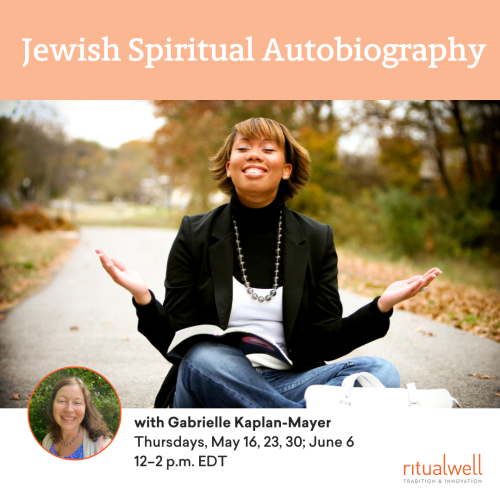Ritualwell’s executive editor, Deborah Glanzberg-Krainin, sat down to talk with rabbis Nancy Fuchs Kreimer, Ph.D., and Sue Levi Elwell, Ph.D., editors of the newly published anthology Chapters of the Heart: Jewish Women Sharing the Torah of our Lives. The following is an edited version of the conversation.
DG-K: Tell me about the genesis of this project.
NFK: We spent lots of time talking about a project we could work on together and we kept returning to narrative theology and memoir and confessional writing. We were interested in those topics and aware that narrative theology is usually created by Christian men. There are personal pieces by Jewish women but they usually deal with Jewish identity, not theological issues. There was a dearth of material that spoke to Jewish women’s personal, spiritual experiences. We wanted to create of resource of Jewish women’s memoirs in which individual lives were recalled through TorahThe Five Books of Moses, and the foundation of all of Jewish life and lore. The Torah is considered the heart and soul of the Jewish people, and study of the Torah is a high mitzvah. The Torah itself a scroll that is hand lettered on parchment, elaborately dressed and decorated, and stored in a decorative ark. It is chanted aloud on Mondays, Thursdays, and Shabbat, according to a yearly cycle. Sometimes "Torah" is used as a colloquial term for Jewish learning and narrative in general., through a system of faith.
SLE: I had just finished working on The Women’s Torah Commentary. That project really confirmed for me that it is always better to work with another person. The exchange is enormously exciting. This book brings together a tapestry of voices. It is a multi-vocal sharing that allows true richness of experience to come through. We all had the opportunity to question each other and learn.
DG-K: Can you share some examples of the topics covered in the book?
NFK: Some are stories of loss and trauma—infertility or the loss of a husband. Others are much more quotidian, like laundry. All the stories show how the authors bring a passion for Judaism into the messiness and beauty of their lives.
DG-K: How does the book contribute to the Jewish feminist project?
SLE: For much of history, women’s histories were not recorded, but women’s stories were still being told. They may not have been the conversations of record, but women have always been sharing their stories with each other and with their children. So this is not new. What is new is the number of women with access to the study of classical Jewish texts. We represent the first generation of women who can easily acquire the necessary tools. So our book is composed of stories, but stories inflected with a sophisticated understanding of foundational Jewish texts.
DG-K: Tell me about the format of the book.
NFK: It was very important to us that this book be accessible to many kinds of people. We were both thinking about different communities we have been privileged to work with—for example, the Muslim and Christian women in my Daughters of AbrahamAbraham is the first patriarch and the father of the Jewish people. He is the husband of Sarah and the father of Isaac and Ishmael. God's covenant - that we will be a great people and inherit the land of Israel - begins with Abraham and is marked by his circumcision, the first in Jewish history. His Hebrew name is Avraham. book club and congregational members that Sue encountered through her work with the Reform movement. We asked ourselves “what kind of insight could we offer into Judaism? What is the path that would result in deep sharing?”
SLE: Some people are surprised that we did not organize the book according to the weekly Torah portion. That rhythm does not resonate for people who are not deeply connected to Jewish traditions. We chose to organize the book the way life comes to people. Our authors weave the Torah into life, as opposed to the other way around.
DG-K: How did you choose the contributors?
NFK: That was the most difficult part. We had a list of almost one hundred names. There are so many fabulous women who could have been a part of this book. In the end, we decided to focus on women who are older. Most of the book’s authors are over 60. We hope someone else will organize a book for younger women.
DG-K: Is there one essay that really stands out for you?
SLE: Tamara Cohn Eskanazi is a woman in her 70s. She is an academic who never wrote a personal essay in her life. In the book, she writes about intimate personal experiences through the lens of texts she has loved, studied and taught.
DG-K: Thank you for sharing this preview. I am looking forward to reading the book!






